Lexi Revellian's Blog, page 13
February 19, 2013
Crisps and Chips - UK and US English
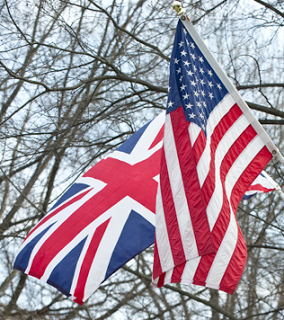 Yesterday evening I was delighted to have a Skype discussion with a book club in Defiance, Ohio, (how cool a name is that for a town?) who were reading
Remix
. It's awesome not only to be able to chat to readers across the Atlantic, but to see them on screen.
Yesterday evening I was delighted to have a Skype discussion with a book club in Defiance, Ohio, (how cool a name is that for a town?) who were reading
Remix
. It's awesome not only to be able to chat to readers across the Atlantic, but to see them on screen.Karen, who contacted me, had made a list of unfamiliar British expressions she'd come across in my novel; she and the other members guessed the meaning then I attempted to give a definition. What struck me was how many words in use here are unknown over there - so many that I now have a new respect for my American readers. I knew about the obvious ones, like tap and faucet, boot and trunk, trousers and pants, but that's not the half of it.
One word I'd already learned about and have avoided in my later books is "jumper". In America, a jumper is a sleeveless dress worn over a blouse or sweater or a child's garment consisting of straight-legged pants attached to a biblike bodice. When Caz pulls on a sloppy jumper over her dress US readers are not visualizing her outfit as I see it. I now stick to sweater.
Jeff Pike was responsible for the most incomprehensible words as he uses slang and swears a lot. Examples: "can't be arsed," "I don't give a toss," "saddo", "tosser", "poncey", "gaff". Caz's vocabulary is milder, but "Bog off" and "bally" were puzzling.
I didn't know that in America a plaster is a bandaid. A torch is a flashlight. Karen explained that a torch means a flaming brand; the advantage is theirs, as we have to make do with one word for both. Chocolate digestives are unknown in the US, and I struggled to explain why they are called digestives (possibly advertised as good for the digestion?)
Parkour and ligger are perhaps a little obscure even in this country. Still, what good is a book if you don't learn the odd new word from it?
Published on February 19, 2013 09:29
February 12, 2013
Conduct becoming a writer
 Once upon a time authors were mysterious beings, recognizable to their readers only by a black and white photograph on the inside flap of a hardback cover, or occasionally at book signings. The internet has changed all that. Most writers have websites, Facebook pages, blogs and twitter accounts; we are there to be found by anyone who is interested.
Once upon a time authors were mysterious beings, recognizable to their readers only by a black and white photograph on the inside flap of a hardback cover, or occasionally at book signings. The internet has changed all that. Most writers have websites, Facebook pages, blogs and twitter accounts; we are there to be found by anyone who is interested.We also have the opportunity to disgrace ourselves like never before, achieving instant fame of a really, really undesirable kind (see this Guardian article on poor Jacqueline Howett). Here are a few things I've learned about appearing on the internet...
It's not good to get into rows on forums. If things start to get heated I wander off and do some useful task like the washing up. I don't have to have the last word.About reviews - even the wrongest person from Planet Wrong is entitled to his opinion.Bear in mind that people you write about will come across your remarks.No one needs to know what your politics are, or your religion come to that. It may put them off, even if you aren't National Front and Wicca (with apologies to all witches).Being polite and helpful is a Good Thing. It's also good for your image.Moaning and grumbling are to be avoided.What would you add?
Published on February 12, 2013 10:06
January 18, 2013
The appeal of post-apocalyptic fiction
 Having recently published Ice Diaries, which tells the story of a small group of survivors in a 2018 London under twenty metres of snow, I got to wondering about the popularity of post-apocalyptic novels. Why are we so willing to imagine the end of our civilization, when for most of us in the West we have never had it so good?
Having recently published Ice Diaries, which tells the story of a small group of survivors in a 2018 London under twenty metres of snow, I got to wondering about the popularity of post-apocalyptic novels. Why are we so willing to imagine the end of our civilization, when for most of us in the West we have never had it so good?What is the attraction of losing everything that makes our lives easy and getting back to basics - sometimes with added zombies?
Here are my theories as to why we find a post-apocalyptic scenario appealing:
In an increasingly Nanny state, the disappearance of tiresome rules and bureaucracy. No more parking tickets or obsessively checking the speedometer to avoid a fine or remembering to put the rubbish out on a Friday, after 5.30 but not before.The chance to have adventures and move out of one's comfort zone. Farewell nine to five.The novelty of being in a familiar setting but under hugely different circumstances.There is a looter and pillager deep in all of us, just waiting for an opportunity. The collapse of civilization makes looting acceptable, even necessary.You can, like my heroine Tori, get to choose an opulent flat to live in that you could never normally afford.Having to be resourceful, and having more control over one's life.Immediate and rough justice, instead of our flawed and expensive judicial system - whose results often, after an agonizingly long wait, amount to rough justice.The planet getting a rest from its biggest depradator, man.

Published on January 18, 2013 09:16
January 15, 2013
ICE DIARIES ~ the paperback
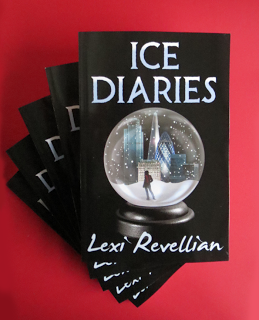
Yesterday the first paperbacks of Ice Diaries arrived. Always an anxious moment, opening the package; I'd got the margins wrong on the proof copy, which meant a lot of reformatting. I was confident enough not to pay £21 for another proof, but the odd doubt lingered. I enjoy formatting for print (I do it on Word, not owning InDesign) and this time I succumbed to the lure of dropped caps. The books look good and I'm rather proud.
Though digital is undoubtedly the future, there will always be a market for print editions, and as an author I like to have a physical copy of my books.
You can buy Ice Diaries on Amazon UK for £6.99 with free postage, or $10.99 on Amazon US.
Published on January 15, 2013 03:58
January 2, 2013
Persistence
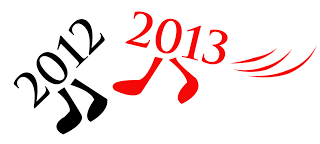 2012 has been a good year for me.
2012 has been a good year for me. My novels have been selling steadily, if not in the huge quantities they did in 2010/11, bringing my total ebook sales to over 60,000. I published a new novel. I've recently had a nice run of enthusiastic reviews, and for a writer nothing is more rewarding than knowing readers have enjoyed your books.
So I had intended to write an assessment of the highs and lows of 2012, plus hopes and predictions for 2013. It was going to be all bullet points - you'd have loved it. I did the illustration specially.
But then I changed my mind and decided to write briefly about persistence. Because in an overcrowded and competitive marketplace, persistence probably matters more than anything, including talent. It's so easy to get discouraged as a writer; sometimes the effort seems pointless. But just keeping going as others fall by the wayside puts you in an elite group, and it's from that group that successful and famous authors will emerge.
Here's a toast to 2013: health, happiness and success!
Published on January 02, 2013 07:09
December 24, 2012
HAPPY CHRISTMAS!
Published on December 24, 2012 03:39
December 23, 2012
Swoon - you may when you read the contract
SW♥♥N will be launched next spring by MacMillan Children's Publishing. It sounds a bit like a YA version of Authonomy; writers will load their unpublished novels, and other members will vote on them. The inducement is that MacMillan may publish successful books.
Anyone like me who has experience of Authonomy will view this project with a jaundiced eye. Writers are a desperate lot, and many will do anything for a chance of publication. This means it is very easy to attract them to a site run by an established publisher, and very difficult to stop them gaming the system. Another problem is that editors think they know better than readers, and tend not to put much faith in the wisdom of crowds, even when that is what they set out to do. Plus these sites are time-sinks, using energy that would be better spent writing or self-publishing.
For the 'lucky' chosen authors, this is what they will get:
Once a manuscript is chosen by the community and the SW♥♥N Reads publishing team, the author will receive a $10,000 advance and a standard royalty-based publishing contract for world rights, including the following royalty rates:
Hardcover – 10% of list priceTrade Paperback – 6% of list pricePaper Over Board – 8% of list priceMass Market Paperback – 6% of list priceE-book – 25% of amount receivedGraphic Book – 6% of list priceElectronic Graphic Book – 10% of amount receivedAudio – 10% of amount receivedDigital Audio – 20% of amount receivedMultimedia/Gaming – 10% of amount receivedSo other people will take between 90% and 94% of the profits of each print book, leaving 6 - 10% for the author. For ebooks, which cost nothing at point of sale, the publisher takes three quarters of the 'amount received'. They will own world rights, and modern publishing contracts take the rights for a very, very long time.
Stingy and mean are words that come to mind. Exploitative, that's another. It's depressing to think that plenty of writers will view this as an opportunity.
Published on December 23, 2012 04:34
December 16, 2012
Are publishers missing a trick?
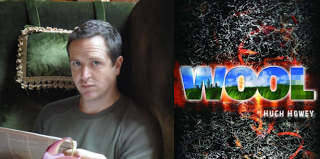 Steven Pressfield wrote a fascinating article going into the financial details of two recent book deals; EL James's, which has received major publicity, and Hugh Howey's, which passed almost unremarked by journalists. But it's Hugh's publishing contract which may change the face of publishing.
Steven Pressfield wrote a fascinating article going into the financial details of two recent book deals; EL James's, which has received major publicity, and Hugh Howey's, which passed almost unremarked by journalists. But it's Hugh's publishing contract which may change the face of publishing. Here it is in Hugh's own words:
"After three rounds of publishers winking, flirting, and making passes at WOOL this year -- after a dozen or so offers that I would've fallen over myself to accept earlier in my career -- after walking away from two 7-figure deals last month that would've meant giving up all control of my publishing future and all of my rights -- Simon and Schuster blew my agent and myself out of the water with a deal that is everything we've been looking for from the very beginning (and never expected to get).
"Less money. More respect. Ultimate freedom.
"This is the contract I've been hoping for, and not just for myself. To be honest, I didn't think it would happen to me. I thought this was a contract for the future -- for other authors. But my agent and I went into these several rounds of discussions telling each other that it was crucial to have these conversations with publishers so that they would get used to hearing what was important to authors. And what's important to authors isn't *always* large advances. We want long-term stability; we want to retain our rights; we want the freedom to publish our way; we think digital rights should either remain in our hands or pay a whole lot better.
"By keeping my digital rights, I'll be able to retain the sensible (i.e. cheap) price of my ebooks so that they will (hopefully) continue to sell. I can lower the price and do promotions anytime I want. I can see my sales in real-time like I always have so I know what works and what doesn't. I can keep the first book at perma-free.
"Simon and Schuster, meanwhile, will do what they do best: they are releasing WOOL in March. They are also doing something awesome here at my behest (read: begging) by releasing the hardback and paperback simultaneously! This means a major push with an affordable paperback in bookstores, with a hardback available for libraries and the handful of people who might prefer one (i.e. my mother).
"We were told by other major publishers that they don't ever see doing print-only deals. When I praised Kristin [Hugh's agent] for pulling this off, she told me it was all about having a client willing to say 'no'. For three rounds, we turned down unfair contracts hidden behind large advances. What we ended up with in the end, of course, is far more valuable to me."
Hugh Howey is an outlier; his staggering success with Wool surprised even him. It started life as a short story he didn't bother to promote, and word of mouth made it a best-seller. Ridley Scott is to make the film version. Right now, only a stellar writer would be so much in demand that he can negotiate his own terms. But I've often thought, if an indie author can sell significant numbers of ebooks, there remains a virtually untapped market (still the major part of the market) for his print books. Why aren't publishers making print deals with authors with a proven sales record? These books are as safe a bet as you'll find in publishing.
If I, all on my own, doing my own proofreading, editing, formatting, cover and marketing, can sell over 40,000 copies of Remix , how many print copies could a publisher sell? And there are hundreds of self-publishers who have done better than me with ebooks, while barely scraping the surface of print sales. This is a huge opportunity, currently wasted.
Published on December 16, 2012 05:04
December 5, 2012
The problem with animals and pets in novels...

I've just finished reading Hollowland by Amanda Hocking. I felt I owed it to such a successful indie, a self-made millionaire by the age of twenty-eight, to check out a novel of hers. And this one is free.
Though I'm not the target reader, I rather enjoyed it, as the heroine is level-headed and ruthless on occasion and the story though episodic moves along briskly. It's the first zombie novel I've ever read. It ended when I wasn't expecting, but a) it's the first in a series and b) I was mislead by the percentage read indicator - the Kindle edition included another book's extract at the end.
My major criticism was the lioness that the heroine, Remy, acquires along the way. She sees the animal trapped in a truck, releases her and calls her Ripley. Ripley turns out to be friendly towards humans, but eats zombies. And I took Ripley altogether too seriously. I worried a lot about her.
She has a chain attached to a collar round her neck. It bothered me that she has to drag this around for most of the book. It must have got in her way when tackling zombies. I fretted when she went for a swim - wouldn't the chain drag her under? One of the first things Remy does for the lioness is give her a drink. It's the only drink Ripley gets in the book, poor thing. She fends for herself whenever Remy's little group are away doing something, then magically reappears and jumps in their truck when they are off somewhere new. She's very convenient, no trouble at all.
Had I included a pet lion in a novel, I'd have reread Born Free and tried to make it as realistic as possible, because I believe that an animal in a novel should be as convincing as the human characters. Just like a real pet, it is not be undertaken lightly. For starters, you have to account for the darned thing the whole time. If you forget, your reader may fret. Instead of being gripped by your plot, she will be concerned the dog hasn't been taken for a walk in days, the parrot must be lonely, or what is that dragon living on?
Perhaps I'm too literal minded. Amanda's fans all think Ripley's cool, just the way she's written.
Published on December 05, 2012 11:09
November 25, 2012
Why fiction genres are a Bad Thing
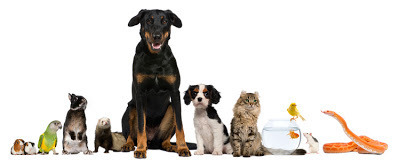 Publishers and bookshop owners love genres.
Publishers and bookshop owners love genres. It makes their life so much easier, not just to know which shelf to put a book on, but also how to market it. Enjoyed last year's big steampunk hit? Then (handing over shiny new book) you'll love this steampunk novel that's just come out.
Newbie writers are told that to have a hope of securing an agent and a publisher, their novel must fit neatly inside a genre. Some genres, like Young Adult, have very restrictive rules. Apparently, teenagers can only relate to heroes their own age or a little older (luckily no one told me this when I was that age). But the 'rules' change. Sometimes a surprise hit makes publishers accept a new genre. Since Fifty Shades, we all know about Mommy Porn, God help us. Now Thursdays in the Park has sprung back to digital life and topped the charts after a lacklustre print launch a few years ago, we must expect an avalanche of Gran Lit. Because when publishers are not busy curating content, such a vital part of their jobs, they are pouncing on whatever seems likely to be the next big money-spinner.
I got to thinking about this while trying to decide what categories to put Ice Diaries into when loading it to Amazon's KDP. Two years ago, you were allowed five. Now it's two, and for anyone whose novels cross genres this makes for hard choices. Fiction...that was easy. Now, Action & Adventure, Contemporary Romance, Romantic Suspense, Thrillers, or Science Fiction? Darned if I know.
I recently started reading Divergent , because the sample looked promising. About 15% into the book it occurred to me, this is Harry Potter meets The Hunger Games, and I bet that's how the book was sold to a publisher, too. This thought was so off-putting I stopped reading.
Rigid genres are a bad thing, as bad as narrowly specifying ages on children's books. Readers don't really care about genres, even if they think they do. What readers want is an absorbing story that will take them away from their lives for a brief spell and preferably leave them with something to think about afterwards. That's all.
Suppose publishers published only the best books, regardless of all other considerations? They'll never try it, but if they did, it just might be the answer to their current self-inflicted woes.
Published on November 25, 2012 05:46




